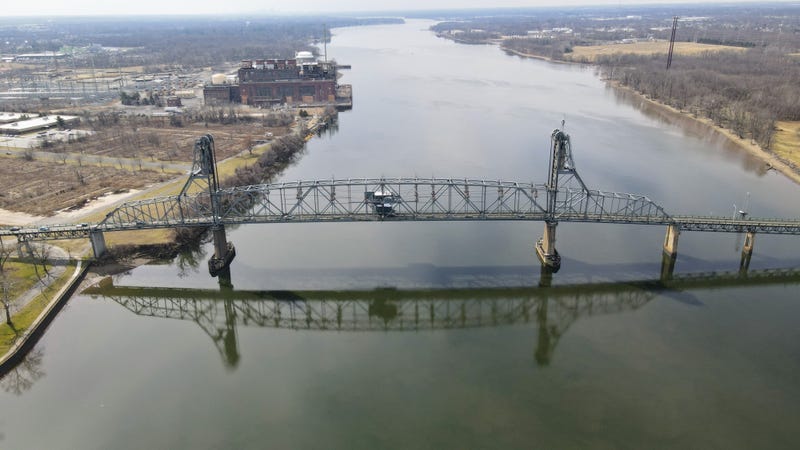
SOUTH JERSEY (KYW Newsradio) — More than 8,000 gallons of chemicals used to make latex paint spilled into the Delaware River on Friday, including butyl acrylate and ethyl acrylate. A chemist from Rutgers-Camden explains the risk this presents.
Chemistry professor David Salas-De la Cruz says they are synthetic polymers, soluble in water, that are fatal if ingested in large quantities. And boiling water contaminated with those chemicals will not make it safe to drink — for the same reason boiling paint doesn’t make it any safer to drink. It won’t remove the chemicals. It will just evaporate the water and leave the chemicals.
“When you leave paint outside, the water evaporates, you still have paint in the bin,” Salas-De la Cruz said.
“Would you drink paint? Absolutely not. It’s very dangerous.”
He says at-home filtration products, like a Brita filter or a refrigerator filter, aren’t designed to filter out these polymers, but a seasoned filter would be more effective than a brand-new one, because there’s more material to catch the contamination.
“That butyl acrylate actually will attach to those particles and drop and then you can filter through membranes or a sand membrane to remove it.”
He says sand-based filtration systems will remove most of the contaminants.
The spill occurred at a chemical plant in Bristol owned by the company Trinseo, which is headquartered in Wayne. Salas-De la Cruz was a consultant at the Bucks County plant more than 15 years ago when it was then owned by Rohm and Haas.
So far, officials from New Jersey’s Department of Environmental Protection and American Water say this spill isn’t affecting the water supply. There are no current advisories in New Jersey for this spill. Officials will continue to test and monitor.
In the meantime, they ask residents to conserve as much as possible for the next 24 to 48 hours.
Philadelphia Water Department continues to monitor
The water currently available to residents in Philadelphia has been treated and tested, using infrared spectroscopy and gas chromatography, to confirm that it is safe to drink and to use for bathing, cooking, and washing. A large portion of the city stands to be affected if the chemical spill were to find its way into the water supply.
The Philadelphia Water Department said contaminants related to the Bristol Township spill were not found in the water system.
However, out of an abundance of caution on Sunday, Michael Carroll, the deputy managing director for the city’s Office of Transportation and Infrastructure Systems, issued an advisory to city residents — just in case trace amounts of the chemicals were to make it into Philly’s tap water.
“I want to reiterate that the health risks are very low if present at all. No acute effects are associated with low-level exposure. Our best information is that people who ingest water will not suffer any near-term symptoms or acute medical conditions. We foresee no reason to seek medical attention related to this event,” he said.
“Additionally, there is no concern over skin exposure or fire hazard. Bathing and washing dishes do not present a concern. Likewise, we have no concern over inhaling fumes at the levels we are evaluating.”
—To get alerts about drinking water quality, sign up for ReadyPhiladelphia by texting READYPHILA to 888-777. Get free phone alerts or customize free text and email alerts by visiting the Office of Emergency Management’s website at www.phila.gov/ready.
—For official updates from the city, follow @PhilaOEM on Twitter or Facebook.
—Other city Twitter accounts to follow for information: @PhiladelphiaGov and @PhillyH2O.

